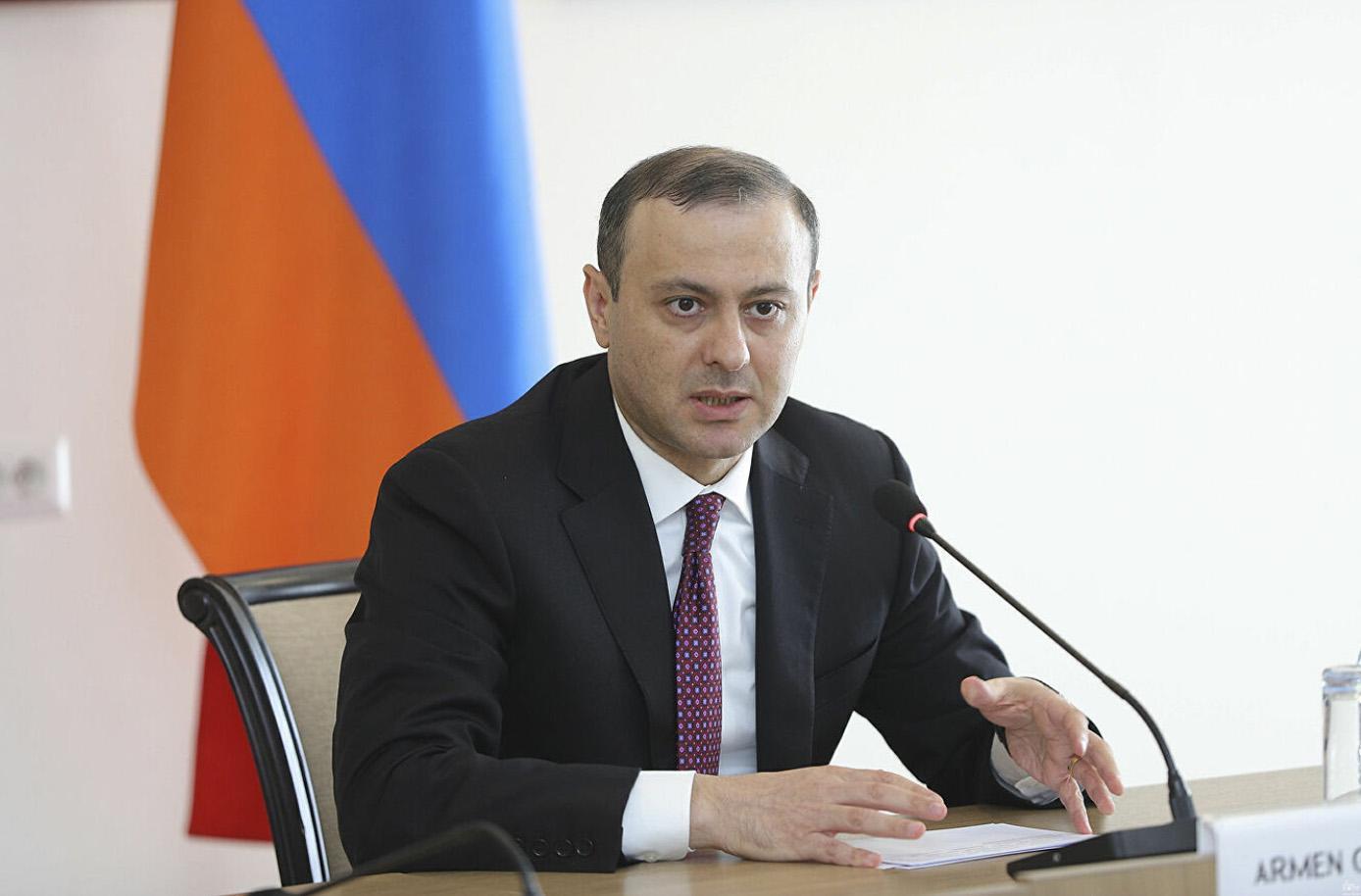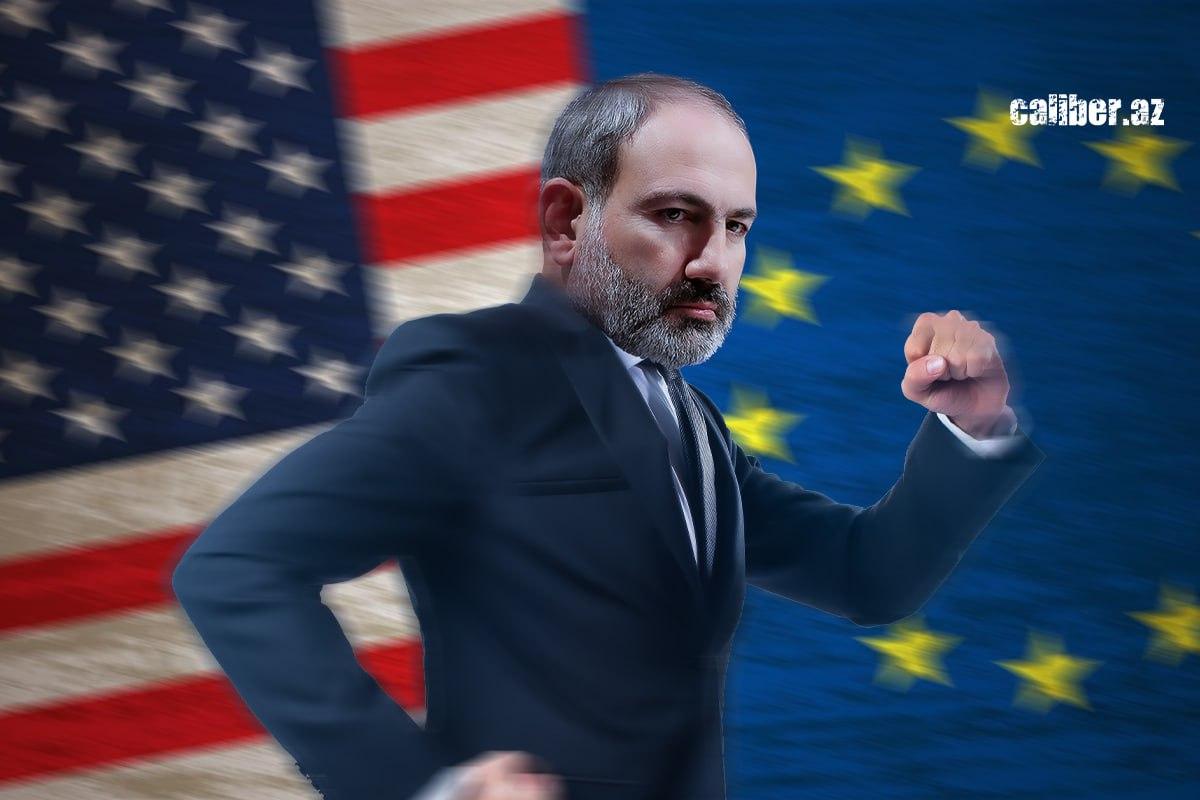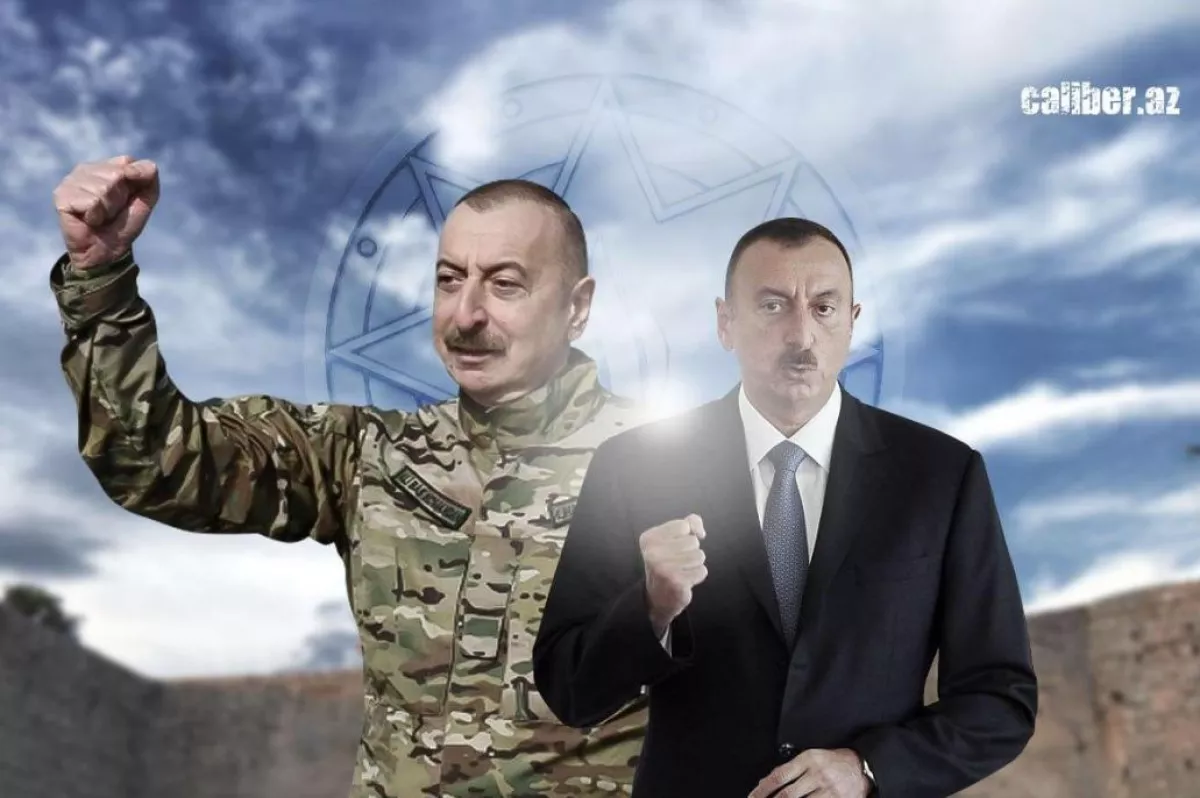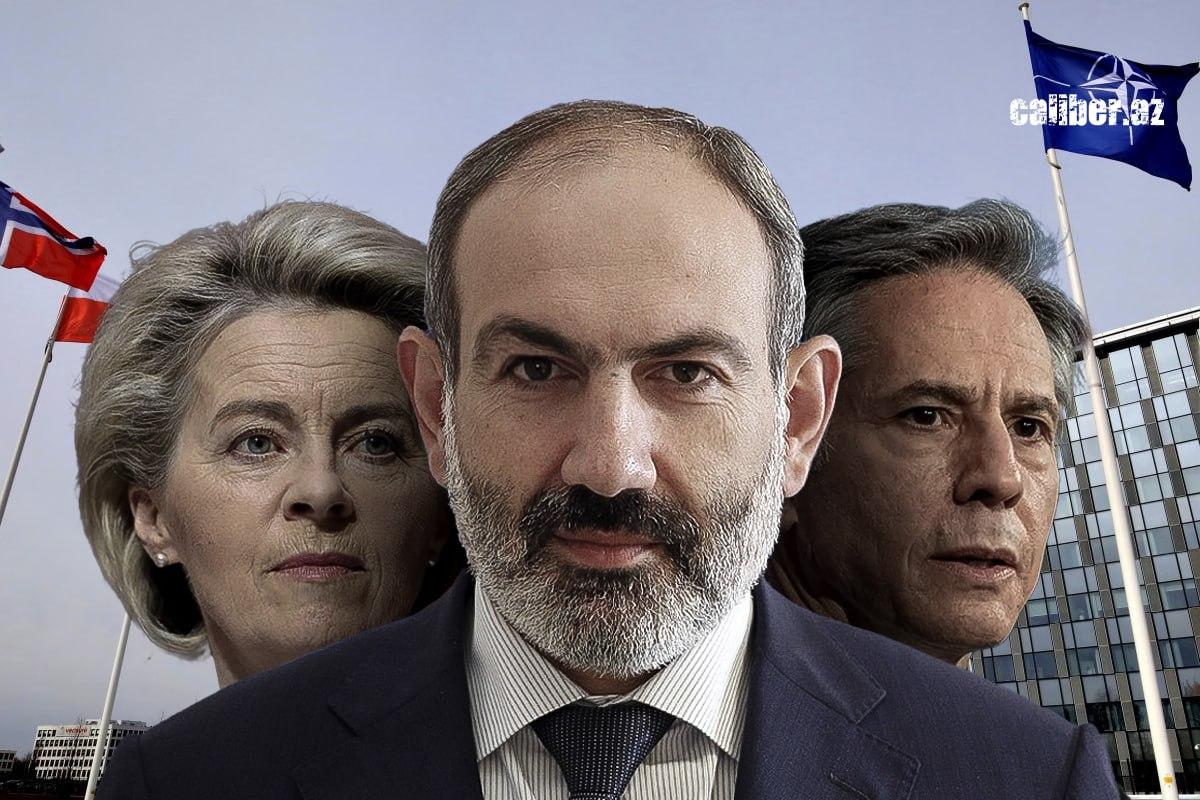Second front against Russia, offensive on Azerbaijan, and coup in Georgia Sensational details of Armenia-NATO talks / VIDEO
On September 30, at NATO headquarters in Brussels, Armenia’s Secretary of the Security Council, Armen Grigoryan, held meetings with representatives of the Alliance's Military Committee. During these talks, strategic agreements were reached, which are a logical continuation and development of the results of Armenia's pivotal meeting with Western allies on 5 April, first reported by Caliber.Az. Despite efforts to discredit the information, subsequent events have shown that this report was absolutely accurate.
"NATO's new southern flank" and the "Djibouti model"
According to new information obtained by Caliber.Az from diplomatic sources, during the September 30 meeting, Grigoryan expressed Armenia’s readiness to become NATO’s “new southern flank.” He emphasized the country’s intent to facilitate the construction of airbases in Armenia and host missile defence units. These bases, according to Grigoryan, would be prepared to accommodate the NATO Response Force (NRF), including land, air, and special operations units. The US and France have actively supported this initiative, while Germany expressed reservations due to the significant presence of Russian troops, intelligence services, and Iranian operatives in the country. However, the US-French tandem argued that establishing such a counterbalance is essential for Armenia's gradual and institutional detachment from Russia’s sphere of influence. They cited the example of Djibouti, the only country in the world where both US and Chinese military bases coexist.

Following the negotiations under the Partnership for Peace program, it was decided to establish a training centre for mountain infantry troops in southern Armenia, which will serve as a cover for the presence of NATO forces. In connection with this, it was agreed that a delegation from the US European Command would soon visit Armenia to plan the implementation process of the agreement reached.
Armenia's plans regarding Azerbaijan: Pressure and ambitions
During the meeting, Armen Grigoryan openly stated that Armenia has chosen a course towards NATO integration and called for maximum pressure on Azerbaijan to force it to agree to peace on "terms acceptable to Armenia." In this context, he requested Western colleagues to assist in increasing informational pressure on Azerbaijan, particularly in relation to the upcoming COP29 conference, noting that Baku is "especially vulnerable" at the moment and must be "compelled to peace."
Grigoryan highlighted that the information campaign led by the Armenian diaspora, with the support of relevant centres in the US, France, and several other NATO countries, has so far failed to extend beyond the circle of Armenian activists and their trusted partners. Therefore, Armenian authorities believe it is necessary to globalize the narrative of the urgent need for peace between Yerevan and Baku before COP29. According to Grigoryan, immediately after the signing of a scaled-back "peace agreement" proposed by Yerevan, Armenia is prepared to initiate the official process of withdrawing from the Collective Security Treaty Organization (CSTO) and declare its path toward NATO integration.

Grigoryan also raised the issue of the so-called "occupation" of several hundred kilometres of "sovereign Armenian territory" by the Azerbaijani army, implying the positions held by the Azerbaijani Armed Forces in undelimited sections of the border. He emphasized that Yerevan sees no possibility of peacefully returning these lands and proposed a plan for a quick victorious war aimed at occupying an equivalent or larger area of Azerbaijani territory by the Armenian armed forces for subsequent exchange. According to Grigoryan, such a "victory" would help restore the fighting spirit of the Armenian army and society, demoralizing Azerbaijani society and weakening the entrenched perceptions of the Azerbaijani army's unconditional military superiority. Moreover, according to the authors of this scenario, this would serve as an important test of the Western military equipment received in real combat conditions and should significantly undermine the increased authority of President Ilham Aliyev in Azerbaijan following the victory in 2020.

Grigoryan drew an analogy to the April 2016 battles, which were a reconnaissance battle for the Azerbaijani army that undermined Serzh Sargsyan's authority, ultimately ensuring the rise of pro-Western forces to power in Armenia. When asked by NATO military officials whether renewed hostilities could risk territorial losses for Armenia, Grigoryan emphasized that the Armenian army is constructing "bastion-fortresses" along the entire Armenian-Azerbaijani border and actively undertaking fortification efforts, drawing on the experiences from the Russia-Ukraine conflict shared by their Western counterparts.
Georgia: Key element of destabilization
Particular attention was given to the situation in Georgia during the discussions. According to Grigoryan, the current Georgian government is friendly toward Azerbaijan, which serves as a deterrent to the region falling under Western control. In this context, the possibilities of Armenia influencing the outcome of elections in Georgia were discussed, especially in areas with a compact population of ethnic Armenians.
The cooperation between Armenian intelligence agencies and Western countries, particularly France and the United States, was highly praised in the context of efforts in the Georgian direction. The performance of Armenia's foreign intelligence service and the high level of cooperation were also positively noted during the meeting.
It was noted that Armenia is being considered as a potential fallback base in the event of a failed revolutionary scenario in Georgia. According to the proposed scenario, the protest movement will be led by the main French agent in Georgia—President Salome Zourabichvili—whose forces hastily assembled an anti-government coalition. If Zourabichvili comes to power in the near future, it is expected that a second front against Russia will open by replicating the 2008 scenario, counting on Moscow being distracted by its military campaign in Ukraine. It was mentioned that during a possible military operation, the Russian military base in Erebuni would be blocked by "civil activists," preventing the Russian army from conducting combat sorties into Georgian territory, unlike the experience in 2008.
Additionally, during the meeting in Brussels, it was stated that Armenian intelligence agencies are preparing "active measures" using an intelligence network established among ethnic Armenians living in Georgia. Preparatory work is being conducted in Armenia with the recruited contingent, which includes elements of street fighting. The process is expected to be joined imminently by the most experienced specialists from the Balkan countries, who have actively worked against the Serbian government.
Relations with Russia and cooperation with the West
During the meeting, Grigoryan expressed gratitude for the fulfilment of the agreements reached on April 5 of this year and emphasized the need to establish a new comprehensive defence pact for Armenia, which would ensure its security as it moves away from Russian influence.

Armenia's cooperation with Western countries, particularly France and the United States, was highly regarded. However, there remains the issue of a significant number of pro-Russian personnel within Armenia's security structures, including the National Security Service and the military. In particular, the French side expressed concern regarding instances where information about French military equipment supplied to Armenia has been transferred to Russia and Iran. Grigoryan assured that efforts are actively underway to purge these agencies of Russian agents and requested expert and operational support from Western intelligence agencies in this process.
The meeting confirmed the importance of sharing intelligence about the Russian army, the Collective Security Treaty Organization (CSTO), and Russian military personnel who have been present in Armenia at various times.
Conclusion
The meeting on September 30 at NATO headquarters vividly demonstrates the risky path Armenia has chosen. Yerevan's policy aimed at attracting NATO for the deployment of military forces and the establishment of corresponding infrastructure within Armenia poses serious threats to regional security. Attempts at political destabilization in Georgia and military ambitions against Azerbaijan could lead to renewed confrontation and exacerbate tensions in the South Caucasus region.
Azerbaijan is aware of the negotiations and actions being undertaken by Armenia. The country remains prepared for any developments and will continue to protect its national interests in light of the changing geopolitical situation. Azerbaijan possesses all the necessary resources to counter any threats arising from the actions of Armenia and its Western allies.








